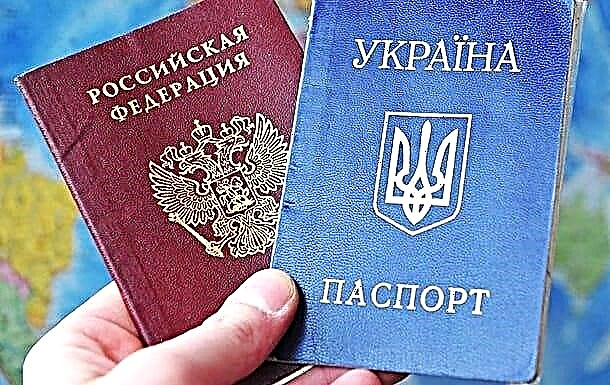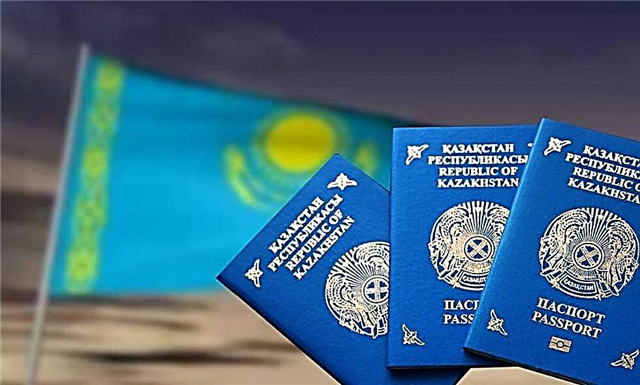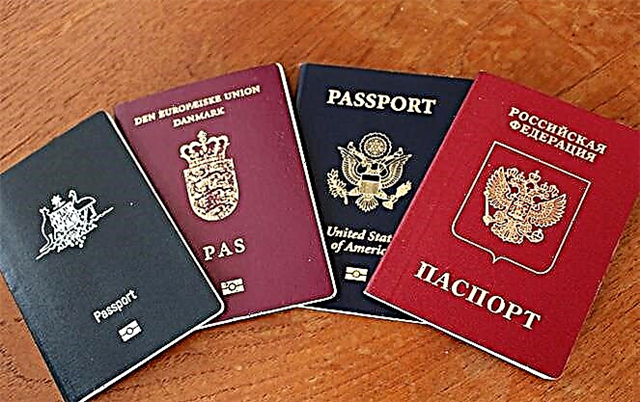The issue of dual citizenship of Russia and Poland is not new; it is periodically raised at different levels. In both states there are both supporters and opponents of this idea. Russians with Polish roots or simply wanting to live in the EU, Polish citizens of Russian origin and Poles with a business in Russia consider dual citizenship of Poland and Russia as a means of gaining what they want: living comfortably in Europe, but making money in Russia. From time to time, information appears in the media about the recognition of dual citizenship between the Republic of Poland and the Russian Federation. Consider whether this is actually the case.

What is "dual" and "second" citizenship, what is their difference
At first glance, there are no special differences between these concepts. However, in fact, the difference is colossal, and it is associated with the acquisition of various legal statuses.
To become a citizen of two states at the same time, it is necessary to have an appropriate interstate agreement; and it is not easy to achieve it, since we are talking about paying taxes to the budget, serving in the armed forces, etc.
There is no agreement between the Republic of Poland and the Russian Federation on the recognition of dual civil status, that is, each country considers a person exclusively as its citizen.
In this case, persons with a double indigenate (bipatrides) receive the right to enjoy the benefits in both countries. At the same time, this privilege also has a downside - infringement of rights when participating in the political life of the country, during employment.
There is no common view on this problem in the world. Some states - Austria, China, Lithuania, Japan and others - are categorically opposed, others (Australia, Canada) support the possibility of a double indigenate.
At the same time, each person has the right to decide for himself how many passports he will have and how many citizenships he will have. Moreover, each country will consider him exclusively as its citizen, regardless of what language he speaks and where he lives.
Take a sociological survey!
Dual citizenship: the Polish vision
In Poland, the question of the double indigenate is being resolved very clearly. Since this status comes into force only if a corresponding agreement is concluded and ratified with a foreign state, in its absence (and such an agreement was not concluded between the Republic of Poland and the Russian Federation) there can be no double indigenate between these states, therefore it is not about how.
Interesting fact. In ancient Rome, at the time of Cicero, the plural indigenate was negatively treated. Anyone who wanted to become a citizen of Rome had to abandon the previous one.
Poles, on the one hand, have always been distinguished by their patriotism and ardent love for their homeland (a true patriot of Poland cannot be a citizen of two states at the same time), and on the other hand, respect for the human right to free choice.
On August 15, 2021, the Law of the Republic of Poland "On Citizenship" of April 2, 2009 (Dziennik Ustaw 2021 item 161) came into force. This law gave Poles the right to have a second (or multiple) citizenship without losing their own.
Foreign citizens (including those from the Russian Federation) also received the right, in the manner prescribed by law, to acquire the indigenous identity of Poland, without giving up their own. That is, the Polish side does not make the renunciation of the previous citizenship a prerequisite for the acquisition of the Polish indigenous. This issue is within the competence of the state in which the applicant for Polish citizenship previously resided or is currently living.
Such citizens will have to fulfill their civic obligations at a double rate: pay taxes to both states, and serve in the army.
The legislation establishes equal rights and obligations both for Polish citizens - holders of several passports, and for those who hold exclusively one Polish citizenship (Law of the Republic of Poland "On Citizenship", clause 1, article 3).
Having a Polish passport gives Russian citizens the right to reside and work in Poland, grants them all rights and freedoms, including to participate in elections, legal, diplomatic and other protection (if the same person retains Russian citizenship on the territory of the Russian Federation, this will be problematic ), allows you to move freely around Poland and the EU countries, etc.

Clause 2 of Article 3 of the aforementioned law states that on the territory of Poland, Polish citizens with a second citizenship have no rights and do not bear any obligations related to citizenship of another state. In the face of the Polish authorities (directly in Poland or abroad), they act only as citizens of the Republic of Poland.
According to the Law of the Republic of Poland "On Citizenship", a foreigner can apply for a Polish passport in two cases:
- granting citizenship by the President of Poland;
- recognizing him as a Polish citizen as a voivode after submitting an application and meeting certain requirements (the right to blood, permanent residence and legitimate continuous stay in the country, knowledge of the state language, etc.).
The recognition of Polish citizenship for both parents automatically makes their children citizens of this country. If one of the parents acquires a Polish passport, children will also be able to be indigenous to the Republic of Poland, provided they receive official permission from the other parent.
According to the new rules, a foreigner cannot be required to give up the previous indigenous person before he acquires Polish (previously this requirement was mandatory). A child who was born in Poland, and his parents are unknown, becomes a citizen of the country automatically. Foreigners who in the past had Polish citizenship, but lost it before 01.01.1999, can apply for the restoration of their indigenous identity.
Dual Citizenship: A View from Russia
The Russian approach to the double indigenous is based on the condition of the conclusion of the relevant bilateral intergovernmental agreements. The Russian Federation has concluded two such agreements - with Turkmenistan and Tajikistan.
According to the agreements reached, bipatrides must fulfill their civic duties in the country in which they permanently reside, while simultaneously enjoying the rights and freedoms in both states (to a reduced extent).
As of August 2021, only an agreement with Tajikistan continues to operate (Federal Law No. 152-FZ of 12/15/1996 "On the ratification of an agreement between the Russian Federation and the Republic of Tajikistan on the settlement of dual citizenship issues"), an agreement with Turkmenistan from 18.05. The year 2021 is no longer valid. In this regard, we can only talk about dual citizenship of the Russian Federation and Tajikistan.
Russian legislation gives its citizens a legitimate opportunity to acquire any other and even several citizenships, without losing the Russian one (clause 2 of article 6 of the Federal Law No. 62 of May 31, 2002). It is imperative to inform the Russian migration authorities about obtaining a second passport, while on the territory of the Russian Federation this person will be considered exclusively as a Russian citizen. From a legal point of view, this legal status can be defined as “multiple” or “second” citizenship.
The article “Is dual and multiple citizenship allowed in the Russian Federation” will tell you in detail about the attitude to bipatrism in Russia.
Interesting fact. In the history of Polish-Russian relations, there was a period of the so-called double indigenate. From 1815 to 1915, the Russian Empire included ethnic Polish lands, which formed the Kingdom of Poland (
), whose inhabitants were considered subjects of Russia.
If the final choice is made in favor of the only citizenship - Polish, then it is necessary to abandon the Russian one. Russian legislation (Art.20 ФЗ № 62 dated 05/31/2002) allows you to do this subject to three conditions:
- if the applicant is not under investigation or in custody;
- fulfilled all obligations to the Russian Federation;
- has or can guarantee the acquisition of another citizenship.
Comprehensive information on the process of renouncing Russian citizenship is provided by the article “Renunciation of Russian citizenship in 2021: the procedure for renouncing citizenship”.

Further actions to terminate Russian citizenship are spelled out in Art. 19 of Law No. 62, in clause 24 of the Regulations on the Procedure for Considering Issues of Russian Citizenship (Decree of the PRF No. 1325 of 11/14/2002), on the website of the Consular Department of the Ministry of Foreign Affairs of the Russian Federation, where you can submit an application online (https: //nation.kdmid. ru / View / Instruction).
All the nuances of acquiring an indigenous to Poland by former Russian citizens are reflected in the articles of the Law of the Republic of Poland "On Citizenship" of April 2, 2009 (chapters 2-5).
Let's summarize
First of all, one should not believe the false information in the media regarding the existence of the double indigenous people of Poland and Russia. It should be clearly understood that the absence of an appropriate agreement between the Russian Federation and the Republic of Poland makes dual Polish-Russian or Russian-Polish citizenship impossible. We can only talk about a second or multiple citizenship: a citizen of the Russian Federation or the Republic of Poland, while retaining the previous indigenous, acquires a second citizenship.
This status leads to a double burden of responsibilities and to the defeat of some rights, so it is worth considering the option of giving up one of the indigenous people.

 ), whose inhabitants were considered subjects of Russia.
), whose inhabitants were considered subjects of Russia.









